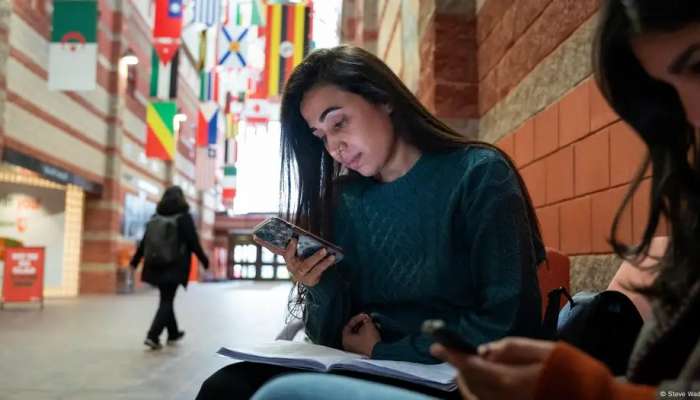
Toronto: In December alone, three Indian students were killed in separate incidents across Canada, prompting concerns about safety and rising violence.
Gurasis Singh, a 22-year-old postgraduate student from Punjab, was stabbed to death by his roommate in Ontario, just four months after he arrived in Canada for his studies.
A few days later, student Rittika Rajput was killed when a tree fell on her during a late-night bonfire in Kelowna, British Columbia. The Royal Canadian Mounted Police reported it as a "non-suspicious" incident.
On December 6, Harshandeep Singh, 20, was shot and killed by a gang in Edmonton. As a student, he worked as a security guard. Two suspects were arrested and charged with first-degree murder in connection with his death.
In response, the Indian government has issued safety advisories for students to exercise "extreme caution."
Indian Foreign Affairs Minister Subrahmanyam Jaishankar said that Indian embassies and consulates are actively monitoring these incidents and maintaining communication with students to inform them about safety measures, particularly regarding dangerous areas in cities.
More Indians studying abroad than Chinese
Indian students currently represent the largest cohort studying abroad, surpassing other nationalities for the first time in over a decade.
As of 2024, around 1.33 million Indian students are pursuing higher education internationally, followed by over 1 million Chinese students, according to government data.
According to the US State Department, over 330,000 Indian students studied at various US higher education institutions in 2024.
Canada has the highest number of Indian students, coming in at over 400,000 in 2024, according to the Indian Ministry of External Affairs.
"With over 400,000 Indian students enrolled in Canadian universities, most are using the student route as a pathway to immigration. A significant percentage end up in sub-par institutions and struggle to make ends meet, working long hours to pay their tuition," said Ajay Bisaria, a former envoy to Canada.
"These students often face serious issues, including hate crimes, mental health problems and maladjustment. They are also vulnerable to exploitation by unscrupulous agents who promise them a smooth transition to Canadian residency," added Bisaria.
Ravinder Singh, an Indian student in Toronto, told DW that many students are vulnerable to targeted crime if they rent accommodation in poorer areas.
"Sometimes, students are just in the wrong place and at the wrong time and that is when they get hurt," Singh said.
Calls for more safety
Former Indian Foreign Secretary Harsh Shringla told DW that with a rising number of Indian students studying around the world, host countries should "provide them with a safe and secure environment."
In the past five years, at least 633 Indian students have died abroad across 41 countries, including the highest of 172 in Canada, followed by the US with 108 deaths encompassing a range of causes, the Indian Foreign Ministry said.
Shringla said host countries need to "ensure that local communities hosting large numbers of students are adequately sensitized to prevent racism and violence against them."
"There can be no justification for such violence perpetrated against harmless young students," added Shringla.
The US-based Foundation for India and Indian Diaspora Studies (FIIDS) published an analysis in April 2024, addressing the cause of deaths among Indian students abroad.
It found that incidents ranged from suspicious shootings, kidnappings, environmental deaths due to lack of safety knowledge, suspicious accidents, and violent crimes.
"The recent increase in their deaths is concerning and, if not addressed, could impact their confidence in the safety of US universities, potentially impacting the inflow of students further," said Khanderao Kand, FIIDS chief of policies and strategy.
Amitabh Mattoo, dean of international studies at Delhi's Jawaharlal Nehru University told DW that more protective measures and support are needed from both host governments and Indian authorities to ensure the safety of students studying abroad.
"There must be sensitivity, security and strengthening of systems for students studying abroad. This proactive approach is important to feel supported and safe while pursuing education," Mattoo said.